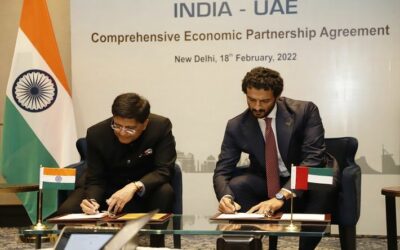Eminent entrepreneur and corporate analyst Deepak Talwar explain the impact of Covid-19 on the automotive sector in India and also suggests how the industry can gain crescendo amid and post-Coronavirus era.
Restrictions on movement, work from home, and unwillingness to travel have altered mobility dynamics at unprecedented levels worldwide and India is no exception.
With the spread of the deadly virus, the world witnessed lockdowns across the countries like never before. Although several nations have moved out of lockdowns and unlocking has begun in phases, mobility dynamics has already been altered and are expected to change in the near future as well.
Eminent entrepreneur Deepak Talwar explain the impact of Covid-19 on the automotive sector in India and also suggests how the industry can gain crescendo amid and post-Coronavirus era.
Impact of the virus on the overall mobility
Most of the governments around the world responded to the initial shock of the Covid-19 by imposing strict lockdowns. The world went to a standstill for the first time in history, limiting movements to a minimum. “Although we have come across the lockdowns phase, people are still afraid to move out. Work-from-home is still the preferred way of working and most people only move out when it is necessary. Consequently, the economic toll on the transportation industry is clearly visible,” says Deepak Talwar.
“This changed everything. Many people won’t be traveling through public transport and will prefer moving through private vehicles for a long time even when things go normal. As many experts have suggested, this may give behavioural change in mobility amongst the people and it will at least take two years to undo the change that happened due to this virus,” he added.
He also said that concepts like social distancing in public transport may change things permanently in the public transportation sector in big cities.
Impact on the automobile sector
Corporate analyst Deepak Talwar has said that the automotive sector was witnessing a slowdown even before the arrival of the coronavirus in India. “The GST, BS4 to BS6 transition, a shift towards shared mobility, etc., had already slowed down the sector several months before Covid-19 came to India. The virus made the situation more severe, it disrupted the supply chain like never before. Sales of motor vehicles dropped to -86.5 per cent in May 2020,” he said.
Moreover, straining political relations with China have made things worse for the industry as a huge chunk of Indian automotive supply heavily depends on the Dragon nation. “Almost $4.5 billion worth of auto-component arrived in India from China in the previous fiscal year.
Firstly, the supply was disrupted by the pandemic and then the vision of expansionist China started troubling. I would like to share that the Indian industry might be hurt by this disruption, but it is not good for China as well, as the world is being wary of Chinese products in almost every sphere. They cannot have it both ways,” he said.
Rising sales, ever-learning industry
As per the recent data available, most of the major players in the industry have recorded gains including, Hyundai, Tata Motors, Kia Motors, Mahindra & Mahindra, and Honda. Maruti Suzuki is an exception, witnessing a drop of over 2 per cent. “These trends indicate what is there in the bag for 2021. Diwali festive season gave a much-needed boost to the sector. Rural growth due to great agricultural produce and the revival of economic activities are expected to bring thrust to the struggling sector,” said Deepak Talwar.
He said that the pandemic has changed the dynamics forever and they have forced the companies to focus on three ‘Rs’ — Respond, Revive, and Reinvent. “Most of the major players responded with the detailed plans to the coronavirus such as proper engagement with the customers via dealerships. Focusing on digitalisation, and shared mobility, and public transport became central to their recovery and reinvent plans. The sedentary automotive industry is injurious to growing economies such as India, as it is the backbone of all the core activities. Now the gains are visible, our companies are doing brilliant in such extreme conditions,” says Deepak Talwar.




